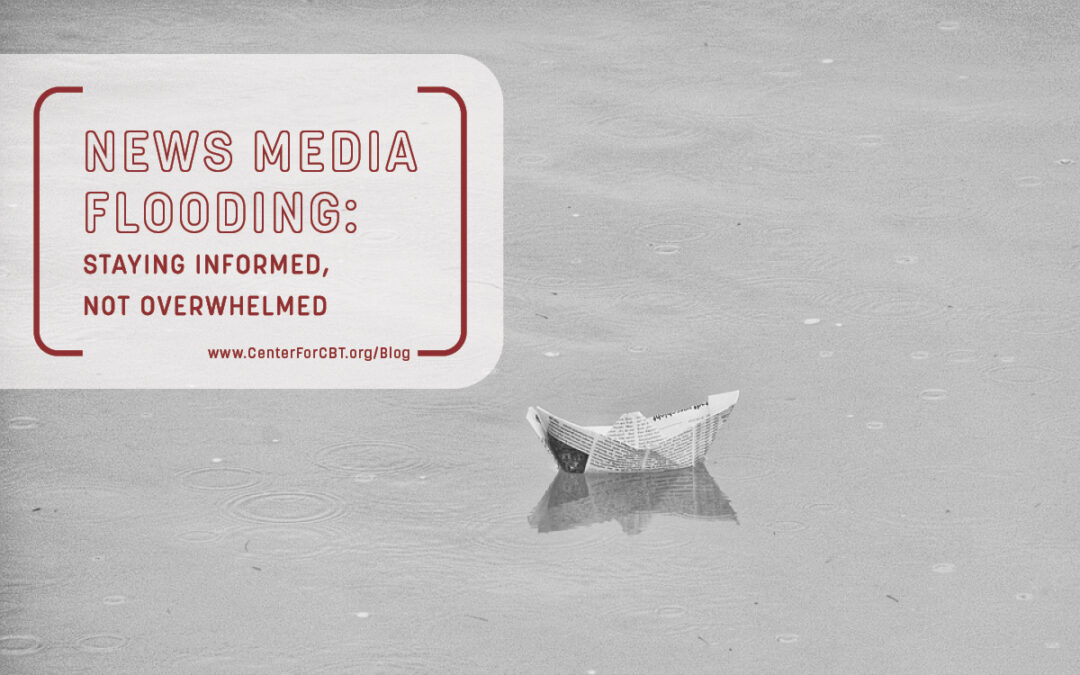Warning: Undefined array key "extension" in /home/cente123/public_html/wp-content/themes/Divi/epanel/custom_functions.php on line 1471
We are living through a tumultuous period in the world’s history. It seems there is always new information for us to absorb, our newsfeeds and timelines now acting as feature panels for the many breaking updates that vie for our attention. For several months the Covid-19 pandemic has been the backdrop for these changes, and as the situation continues to develop, so does life at home. There have been significant changes in the day-to-day, and we’re all eager for any updates that could give hope of things becoming “normal” once again.
This has prompted many people to access their phones or televisions screens at a much higher frequency in order to stay as up-to-date as possible on news related to Covid-19. Staying informed will help us stay safe and feel better, right? Well, not always. When we’re anxious, we tend to seek out information that confirms our fears. Our brains are programmed to detect threats rather than dismiss them, and the news is full of them right now. While it’s important to stay informed, for some of us, too much information can lead to anxiety, confusion, or anger. This is particularly true now, when the news is a sea of information, and an ocean of misinformation.
In the past five months, there have been waves of social development as the pandemic has progressed. However there is still an abundance of scientific understanding and advances that have yet to take place. The current reality is that there is still minimal information that has surfaced which could actually result in meaningful behavior change (i.e. the things you can control). The best we can do is to continue the practices that limit the spread of infection, like wearing masks when out in public, social distancing, and washing our hands. But does this mean you should stop watching or reading the news completely? No. Just like most things in life, moderation is key.
Monitoring Media Intake
Every now and again, take a step back from the news and consider how it’s making you feel. There is a fine line between helpful and unhelpful media consumption, and the uncertainty of the situation leaves many of us bobbing in between. To avoid sinking into the trenches of negativity, exercise the following awareness techniques to keep yourself afloat when reading updates:
Notice your mood and the emotions you have in response to the media. Are you feeling stressed by the information, or relieved?
Listen to your thoughts. Are they saying “I’ve learned something that will help me stay safe” or “this is never going to get better”?
Reflect on the effect your media consumption has on your mindset. Ask yourself: How was this helpful to me? Did I learn anything new from this? Am I able to continue about my day in an effective manner?
If your head is feeling full, and your responses to the questions above are predominantly negative, it’s probably a good idea to reduce your intake of pandemic-related media. It’s important to stay informed, but the key to maintaining a healthy level of media consumption lies in rationing your intake, and as well as where you access information.
Refer to Trusted Information Sources
Prioritize the usage of reputable resources, such as the CDC, WHO, or the New Jersey COVID-19 Information Hub. As convenient as social media may be for a quick update, avoid using it as a regular resource. Many of the posts contain misleading or inaccurate information, and while the platform may try to fact-check these, there is no guarantee that the content is reliable.
Plan Time for Updates
Be conscious of when you’re accessing media, and set aside a small portion of time during your day for news updates. If early-morning updates put you in a bad mood and make it difficult to complete your normal routine, find a period when you can catch up on information during the day instead. Likewise, try not to access information in the hour before going to sleep for the night; allow yourself that time to ease your mind.
Limit Your Exposure
This will look different from person to person, but try to limit the amount of time you spend watching the news or reading about the virus to a maximum of 15-30 minutes. This may be segmented into blocks throughout the day, or condensed to one period that is convenient for your schedule. It’s also important to designate one or two days a week as “media-free,” to give yourself a mental break.
The goal is to strike a balance between staying informed, and overwhelming yourself in a way that adversely impacts your wellbeing. We all want answers in this uncertain time, but don’t let yourself get swept away by the neverending stream of updates. When accessed in moderation, media consumption can be part of your routine without compromising other aspects of your life.



